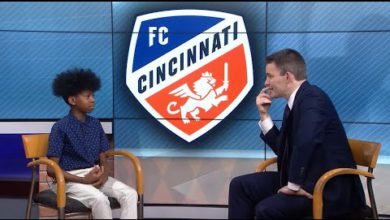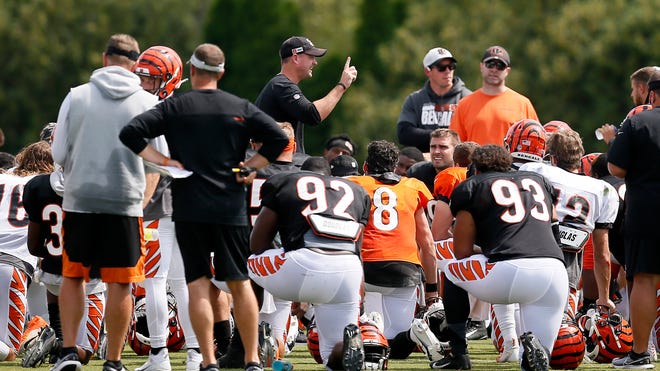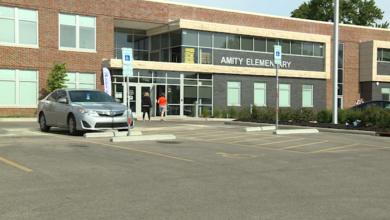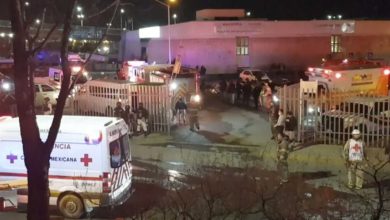The Johnson & Johnson COVID-19 vaccine may not be as effective as those with mRNA technology, according to a new study Tuesday.
The study, posted by bioRxiv, says that the 13 million people who received the vaccine may need to receive a second dose, ideally the Pfizer or Moderna vaccine.
Although the study has not been peer-reviewed nor published, the findings align with studies of the AstraZeneca vaccine that concludes one dose of the vaccine is 33% effective against symptomatic disease of the Delta variant and 60% effective against the variant after the second dose.
“The message that we wanted to give was not that people shouldn’t get the J.&J. vaccine, but we hope that in the future, it will be boosted with either another dose of J.&J. or a boost with Pfizer or Moderna,” said Nathaniel Landau, a virologist at New York University's Grossman School of Medicine who led the study, told New York Times.
The results contradict studies published by Johnson & Johnson that say a single dose of their vaccine is effective against the variant.
The delta variant continues to spread across the U.S. and accounts for about 83% of cases in the nation, according to the Centers for Disease Control and Prevention. All vaccines are not 100% effective, as shown through the rise in cases in vaccinated folks, but they have proven to keep people from a serious illness.
Also in the news:
► The head of the World Health Organization says the Tokyo Olympics should not be judged by how many COVID-19 cases arise because eliminating risk is impossible.
►Las Vegas employees are now required to wear masks indoors by Clark County commissioners. Three months ago, federal authorities announced that people who were fully vaccinated did not have to wear their masks indoors. The new mandate will be effective at midnight Wednesday and will remain in place until at least Aug. 17.
►Apple is reportedly delaying their return to the office by at least a month until October due to delta variant’s spread, Bloomberg reported. CEO Tim Cook previously said that employees would return to the office three days a week in September. Now Apple is one of the first U.S. tech giants to postpone their return to in-person work.
►A White House official and an aide to House Speaker Nancy Pelosi, D-Calif., tested positive for the coronavirus after attending an event together, a White House official confirmed.
► Amazon will no longer be testing their warehouse employees at the end of the month because of the availability of vaccines and free testing, The Information reported. The initiative began last year while tests were difficult to secure and reported about 1.4% of their workers tested positive at some point in 2020.
📈Today's numbers: The U.S. has had more than 34.1 million confirmed COVID-19 cases and more than 609,000 deaths, according to Johns Hopkins University data. The global totals: More than 191 million cases and 4.1 million deaths. More than 161.4 million Americans — 48.6% of the population — have been fully vaccinated, according to the CDC.
📘What we're reading: At a time when the infection rate has doubled, many remain unvaccinated and the delta variant is vastly more contagious than the original, it's important to recognize vaccines aren't flawless.
Keep refreshing this page for the latest news. Want more? Sign up for USA TODAY's Coronavirus Watch newsletter to receive updates directly to your inbox and join our Facebook group.
Over one million children may have been orphaned by the COVID-19 pandemic
A recent study reveals another devastating impact the coronavirus pandemic has had on children around the world.
Researchers at Boston Children’s Hospital estimate more than a million children may have been orphaned because of a COVID-19-related death, according to their model published Tuesday in The Lancet. They defined orphaned as losing at least one parent.
The countries with the highest number of children who lost primary caregivers included the United States, South Africa, Peru, India, Brazil and Mexico. Read more here.
- Adrianna Rodriguez
Wildfire smoke may add to COVID-19 risk
Nevada-based scientists argue in a new study that wildfire smoke may increase the risk of contracting the coronavirus.
A study published last week by scientists at the Desert Research Institute found that coronavirus infection rates increased disproportionately during wildfire season in 2020, when smoke from fires in neighboring states blanketed much of northern Nevada.
In a paper in the Journal of Exposure Science & Environmental Epidemiology, Desert Research Institute Assistant Research Scientist Daniel Kiser and four co-authors note the test positivity rate in Washoe County increased significantly during periods when monitors measured high levels of particulate matter in the air from wildfire smoke.
For every 10 micrograms per cubic meter of small particulate matter known as PM2.5 in the air, the positivity rate increased about 6.3% two to six days later, the study found.
Kiser said the study was observational and noted that the uptick could be attributed to other factors, like last year’s second surge, students returning to schools or changes in local restrictions. But he said momentary upticks during periods of high pollution suggested a connection between smoke and the spread of the virus.
“That temporary association in the midst of a large uptick in cases overall is what convinced us that something’s going on,” he told the Associated Press.
Employees now required to wear masks indoors in Las Vegas
Clark County commissioners have mandated that all employees working indoors in a public space must wear masks — an effort to help stem the rapid spread of COVID-19 in recent weeks.
Adopted during an emergency meeting Tuesday, the new restrictions come three months after federal authorities announced that fully vaccinated people no longer have to wear masks in most indoor and outdoor places.
But new coronavirus cases leaped in Nevada the week ending Sunday, rising 51.8% as 5,024 cases were reported. The previous week had 3,309 new cases of the virus that causes COVID-19.
“One solution, of course, is wearing a mask,” Southern Nevada Health District Chief Medical Officer Cortland Lohff told commissioners.
Nevada ranked fifth among the states where coronavirus was spreading the fastest on a per-person basis, a USA TODAY Network analysis of Johns Hopkins University data shows.
— Ed Komenda, Reno Gazette Journal
Tennessee's largest district will require masks this fall
Shelby County Schools, Tennessee's largest district, will continue requiring masks of all students and staff, regardless of vaccination status, the district announced Tuesday.
Though students are currently enrolled in summer learning camps in person, the mask guidance remains in effect as all district students are required to return to in-person learning for the first time on Aug. 9 since the district shuttered in March 2020. Since then, all in-person attendance for students has been optional. Teachers were required to return in-person last March.
The district says it encourages COVID-19 vaccinations, but will not require them of students or employees.
"The District is mindful of the rising cases and the spread of the Delta variant," the SCS announcement said. "Therefore, masks should be worn indoors (schools) and on buses by all employees and students, regardless of vaccination status, until further notice."
The move is in line with American Academy of Pediatrics guidance issued Monday, calling for students to learn in person this school year and that for all people, regardless of vaccination status, to wear masks in schools.
- Laura Testino, Memphis Commercial Appeal
Contributing: The Associated Press
Source link







